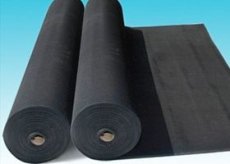New publications
Plastic asphalt - the road of the future
Last reviewed: 02.07.2025

All iLive content is medically reviewed or fact checked to ensure as much factual accuracy as possible.
We have strict sourcing guidelines and only link to reputable media sites, academic research institutions and, whenever possible, medically peer reviewed studies. Note that the numbers in parentheses ([1], [2], etc.) are clickable links to these studies.
If you feel that any of our content is inaccurate, out-of-date, or otherwise questionable, please select it and press Ctrl + Enter.

Asphalt is not the most useful covering, with the production of each ton 27 kilograms of carbon dioxide are emitted into the atmosphere, in addition, it has the ability to absorb heat and leads to the formation of heat islands in the city (areas where the air temperature is higher than outside the city). But also a threat to the environment is plastic waste, which accumulates in huge quantities in landfills and cannot all be recycled into other things useful for humans and their lives.
Scientists from different countries are working in this direction and perhaps the situation will change in the coming years, but one construction company from Holland has proposed a new form of road surface that will be made from plastic waste.
Construction company VolkerWessels has shared its plans for the production of road surfaces based on recycled plastic. Such "asphalt" requires less maintenance than traditional asphalt, and is also capable of withstanding large temperature fluctuations (from -40 to +800C).
It only takes a few weeks to lay a plastic road.
The head of the company, Rolf Mars VolkerWessels, noted that a road made of plastic is much lighter, which will reduce the load on the ground; in addition, such roads will be hollow, which will facilitate the process of laying pipelines and cables.
Another advantage of plastic asphalt is its low operating costs. Road sections assembled at the factory can be delivered to the required location, where the surface can be assembled in a relatively short time, which will help avoid traffic jams caused by road works.
The head of VolkerWessels also noted that plastic asphalt, in comparison with traditional road surfaces, is also easier to maintain.
Although the project to create plastic asphalt is conceptual, the company hopes that in the next three years they will be able to present a highway made entirely of recycled plastic waste. In addition, an interested party has already appeared in this project – Rotterdam, which is a supporter of sustainable technologies.
The engineering office of the city council of Rotterdam noted that they support the project to create plastic asphalt by the company VolkerWessels. One of the leading engineers of the city noted that Rotterdam is always ready for experiments and innovations, in addition, the city has a so-called "street laboratory" in which such innovations can be tested.
According to Rolf Mars, the idea of recycling plastic into asphalt has huge potential, as in the future such roads could be additionally equipped with heating or made into an ultra-quiet surface.
At the moment, the project is only on paper; in the near future, specialists plan to begin testing such a road surface in laboratory conditions to ensure that such a surface will be safe in all weather conditions.
The company is currently looking for partners and plastic manufacturers who are willing to cooperate, and specialists are also looking for universities and research centers where plastic waste can be processed.
